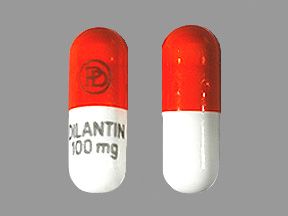Top Class Actions’s website and social media posts use affiliate links. If you make a purchase using such links, we may receive a commission, but it will not result in any additional charges to you. Please review our Affiliate Link Disclosure for more information.

Stevens Johnson Syndrome (SJS) and its cousin disease Toxic Epidermal Necrolysis (TEN) are serious skin reactions that occur when a patient has an allergic reaction to a medication like Dilantin. According to a study published by the United Kingdom’s government, certain patients have a genetic predisposition to developing Dilantin SJS and TEN.
In January 2011, the Medicines and Healthcare Products Regulatory Agency of the UK published a Drug Safety update concerning new Dilantin SJS research. According to one study, patients with Thai or Han Chinses ancestry have a high risk of developing Dilantin SJS symptoms because of the presence of a human leukocyte antigen (HLA) allele HLA-B*1502.
The Dilantin SJS study included ten patients of “Thai ethnic origins” who suffered from epilepsy and developed SJS after an antiepileptic treatment. Each of these ten patients tested positive for the HLA-B*1502 genetic variant and four of the ten SJS victims specifically took a phenytoin drug like Dilantin.
The researchers recommend that healthcare professionals be aware of the risk of Dilantin SJS for patients with these ethnic backgrounds and the HLA-B1502 genetic variant when prescribing Dilantin or another phenytoin-based anti-epileptic medication. However, the researchers cautioned that due to the limited data linking Dilantin SJS to this genetic variant, they could not recommend that all patients of Thai and Chinese decent be screened for the HLA-B1502 gene before being prescribed Dilantin.
In November 2011, the United States government followed in the UK’s footsteps when the FDA published their own Dilantin drug warning, stating: “Studies in patients of Chinese ancestry have found a strong association between the risk of developing SJS/TEN and the presence of HLA-B*1502, an inherited allelic variant of the HLA B gene, in patients using carbamazepine,” according to the FDA’s Med Watch website.
Dilantin Stevens Johnson Syndrome Symptoms and Complications
In addition to individuals with Thai and Han Chinese ethnic backgrounds, many other individuals of various genetic makeup have reported developing Dilantin SJS. Symptoms of Dilantin SJS or TEN include:
- Flu-like symptoms, such as fever, sore throat, cough, burning eyes
- Red or purple skin rash
- Hives
- Blisters on the skin and mucous membranes, especially in the mouth, nose and eyes
- Facial swelling
- Tongue swelling
- Skin pain
- Skin shedding (sloughing)
Because SJS rashes and burns are similar to those experienced by burn victims, Dilantin SJS and TEN victims are generally treated in hospital burn units. SJS patients have about a 5 to 15 percent chance of dying from SJS side effects. The mortality rate increases to 30 to 40 percent when their skin condition upstages to TEN.
If you or someone you love has suffered from Dilantin SJS or TEN, you may consider filing an SJS lawsuit. You may be entitled to compensation for the medical bills and pain and suffering experienced because of this painful and deadly skin condition.
Do YOU have a legal claim? Fill out the form on this page now for a free, immediate, and confidential case evaluation. The SJS attorneys who work with Top Class Actions will contact you if you qualify to let you know if an individual lawsuit or Dilantin class action lawsuit is best for you. [In general, Dilantin lawsuits are filed individually by each plaintiff and are not class actions.] Hurry — statutes of limitations may apply.
ATTORNEY ADVERTISING
Top Class Actions is a Proud Member of the American Bar Association
LEGAL INFORMATION IS NOT LEGAL ADVICE
Top Class Actions Legal Statement
©2008 – 2024 Top Class Actions® LLC
Various Trademarks held by their respective owners
This website is not intended for viewing or usage by European Union citizens.
Get Help – It’s Free
Help for Victims of Stevens Johnson Syndrome
If you or a loved one were diagnosed with Stevens Johnson Syndrome (SJS) or toxic epidermal necrolysis (TEN) after taking a prescribed or over-the-counter medication, you may be eligible to take legal action against the drug’s manufacturer. Filing an SJS lawsuit or class action lawsuit may help you obtain compensation for medical bills, pain and suffering, and other damages. Obtain a free and confidential review of your case by filling out the form below.
An attorney will contact you if you qualify to discuss the details of your potential case at no charge to you.
Oops! We could not locate your form.












